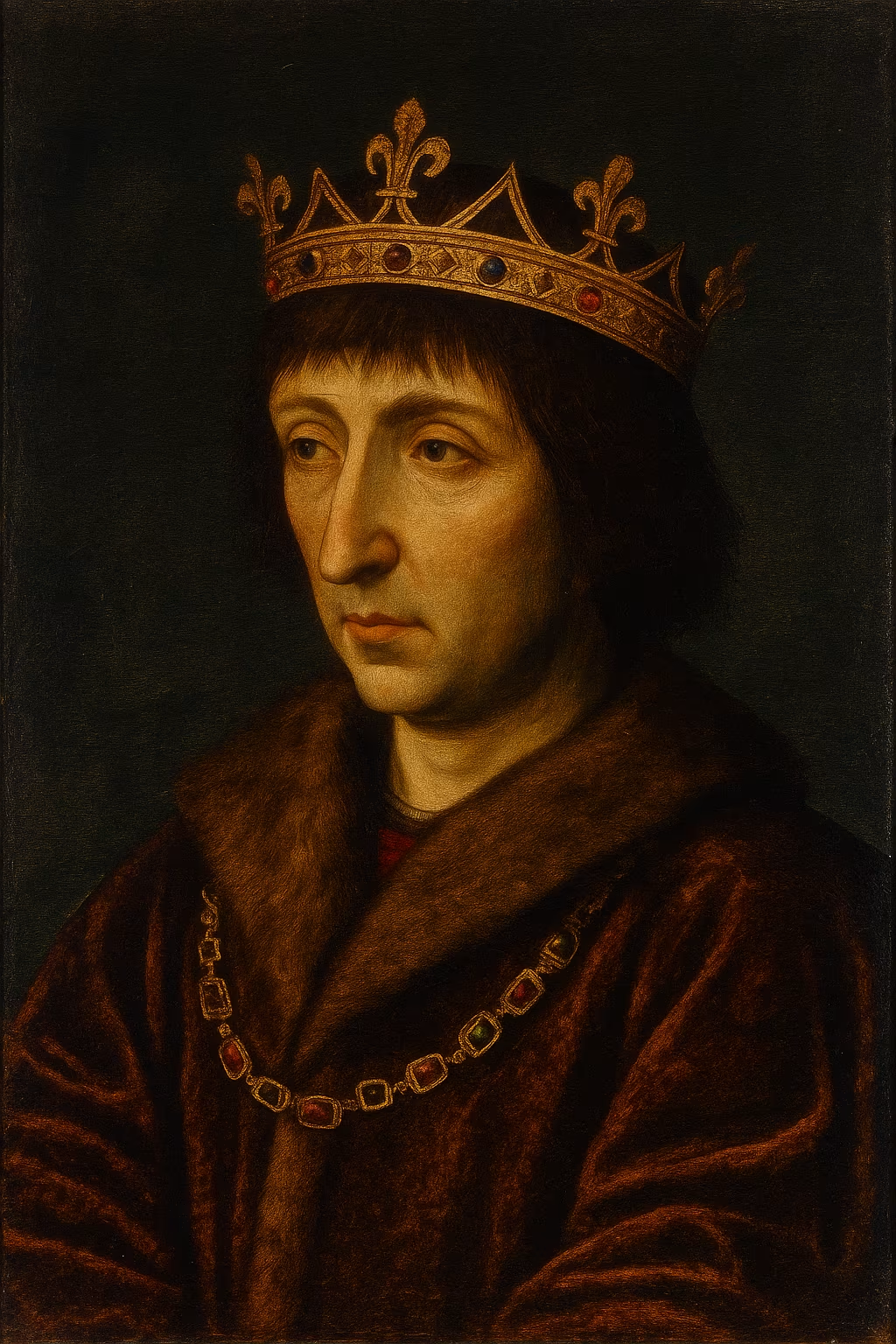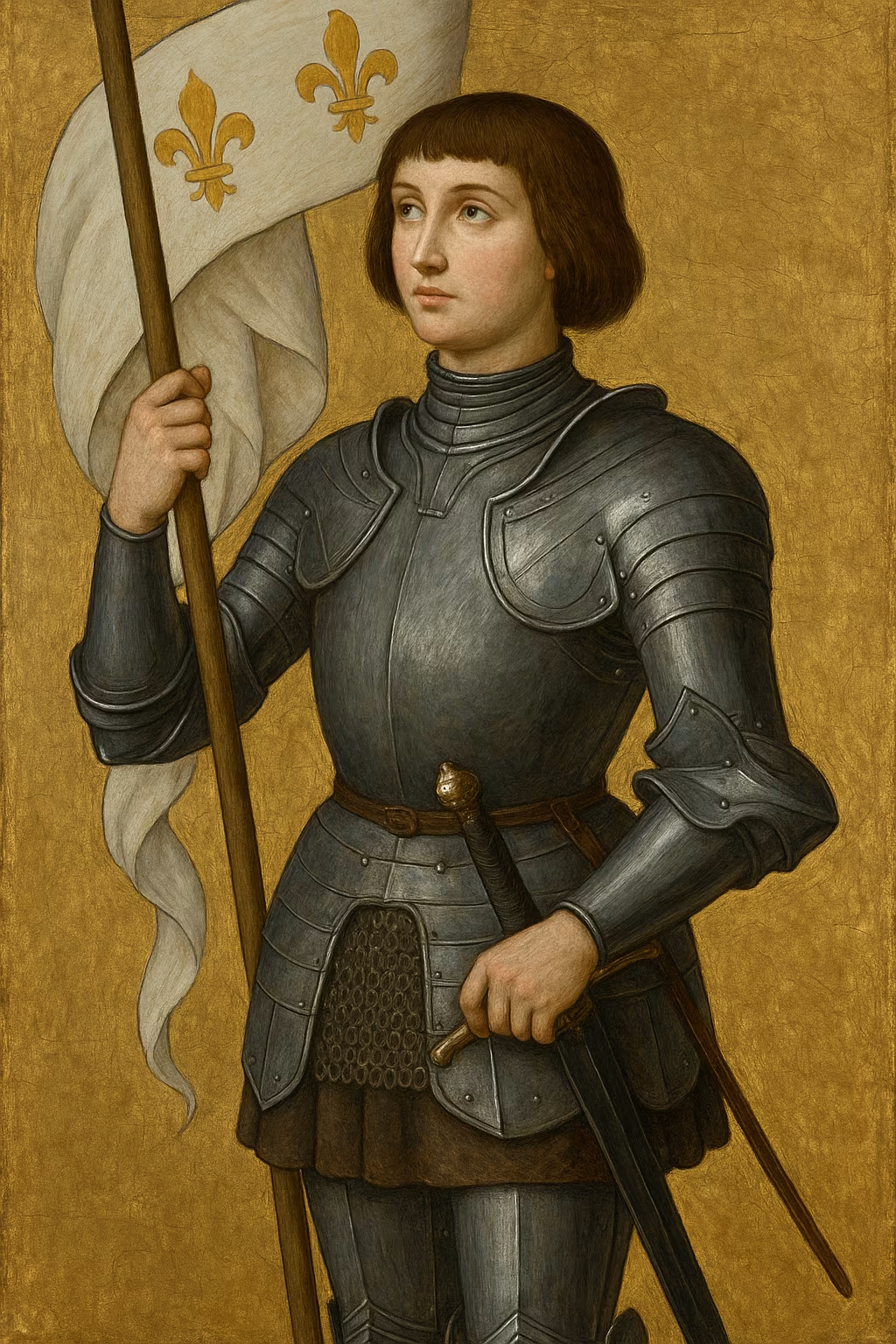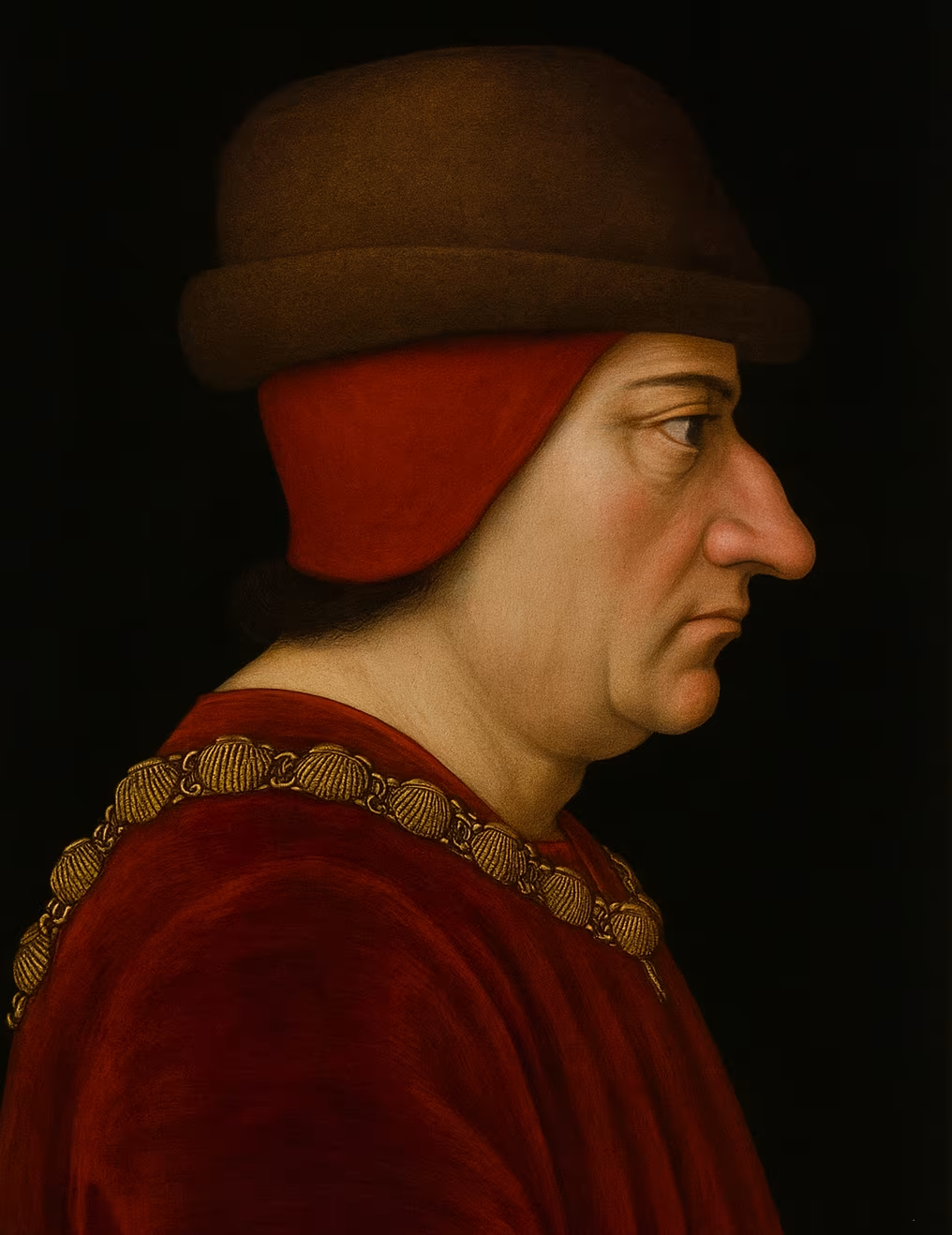Charles VII of France (1403 – 1461)
Quick Summary
Charles VII of France (1403 – 1461) was a king of france and major figure in history. Born in Paris, Kingdom of France, Charles VII of France left a lasting impact through Restored legitimacy with the Reims coronation (1429).

Birth
February 22, 1403 Paris, Kingdom of France
Death
July 22, 1461 Mehun-sur-Yèvre, Kingdom of France
Nationality
French
Occupations
Complete Biography
Early Life
Born in Paris on February 22, 1403, eleventh child of Charles VI—who suffered bouts of insanity—and Isabeau of Bavaria, Charles came of age amid civil war between Armagnacs and Burgundians and deep English interference.
Political Context
The Treaty of Troyes (1420) disinherited him in favor of England’s Henry V and his heir. On Charles VI’s death (1422) he nonetheless claimed the crown as Charles VII, effectively ruling a Loire-centered ‘Kingdom of Bourges’ while Paris and the north remained Anglo-Burgundian.
Accession
From Bourges he strengthened his councils and finances and relied on loyal captains—Jean de Dunois, La Hire—and on Constable Arthur de Richemont to rebuild royal forces despite great noble factionalism.
Joan Of Arc
Joan of Arc’s arrival in 1429 proved pivotal. After Chinon and the theological inquiry at Poitiers, she helped lift the siege of Orléans (May 1429) and cleared the road to Charles’s coronation at Reims (July 17, 1429), restoring Capetian legitimacy.
Treaties And Alliances
Despite Joan’s capture (1430) and death (1431), diplomacy advanced: the 1435 Treaty of Arras reconciled Charles and Philip the Good of Burgundy, severing Burgundy’s alliance with England. Paris was recovered in 1436.
Military And Fiscal Reforms
To sustain war and government, Charles enacted reforms: the Pragmatic Sanction of Bourges (1438) concerning the French Church; the 1439 ordinance making the taille a permanent tax to fund troops; the compagnies d’ordonnance (1445) as a standing cavalry core; and the 1448 francs-archers territorial militia. A reorganized royal artillery—led notably by the Bureau brothers—became decisive.
Reconquest
French advances quickened: in Normandy, the 1449–1450 campaign ended with Formigny (1450); in Gascony, the 1451–1453 operations culminated at Castillon (1453), where French artillery defeated the English and John Talbot fell. England retained only Calais.
Governance And Court
The reign consolidated royal finance, justice, and administration. Figures such as Jacques Cœur supported commerce and fiscal capacity before his downfall. Court culture, including the acknowledged favorite Agnès Sorel, helped project a restored monarchy.
Later Reign And Death
Late years saw tensions with his son, the future Louis XI, and noble unrest (the Praguerie, 1440). Charles VII died at Mehun-sur-Yèvre on July 22, 1461, bequeathing a pacified kingdom and stronger institutions.
Legacy
As the monarch who oversaw the final French victory in the Hundred Years’ War, Charles VII stands for dynastic recovery: a permanent army, regular taxation, a re-centered royal authority, and renewed Capetian prestige—the groundwork of the early modern state.
Achievements and Legacy
Major Achievements
- Restored legitimacy with the Reims coronation (1429)
- Treaty of Arras with Burgundy (1435)
- Pragmatic Sanction of Bourges (1438)
- Permanent taille to fund troops (1439)
- Compagnies d’ordonnance (1445) and francs-archers (1448)
- Victories at Formigny (1450) and Castillon (1453) ending the Hundred Years’ War
Historical Legacy
Charles VII’s reign restored the monarchy after decades of crisis. Military-fiscal reforms and decisive victories ended the Hundred Years’ War and laid institutional foundations for early modern France.
Detailed Timeline
Major Events
Birth
Paris
Claims the throne
Proclaimed at Bourges despite Treaty of Troyes
Coronation at Reims
After the lifting of Orléans
Treaty of Arras
Reconciliation with Burgundy
Pragmatic Sanction of Bourges
Church governance in France
Permanent taille
Regular funding for the army
Compagnies d’ordonnance
Standing companies created
Francs-archers
Territorial militia organized
Formigny
French victory in Normandy
Castillon
Decisive victory ending the war
Death
Mehun-sur-Yèvre
Geographic Timeline
Famous Quotes
“I owe my crown to Joan the Maid.”
“Better to be well served than well born.”
External Links
Frequently Asked Questions
When was Charles VII born and when did he die?
Born February 22, 1403 in Paris; died July 22, 1461 in Mehun-sur-Yèvre.
Why was he called the ‘King of Bourges’?
Because his authority initially extended mainly over central France around Bourges.
What role did Joan of Arc play?
She helped lift the siege of Orléans and enabled his coronation at Reims, strengthening his legitimacy.
How did he reform the monarchy?
By creating standing companies, organizing the francs-archers, regularizing the taille, and strengthening royal administration.
What ended the Hundred Years’ War under his rule?
French victories culminating at Castillon in 1453.
Sources and Bibliography
Primary Sources
- Procès de réhabilitation de Jeanne d’Arc (1456)
Secondary Sources
- Jean Favier, La guerre de Cent Ans ISBN: 9782213024810
- Christopher Allmand, The Hundred Years War ISBN: 9780521571727
External References
See Also
Related Figures
Specialized Sites
Batailles de France
Discover battles related to this figure
Dynasties Legacy
Coming soonExplore royal and noble lineages
Timeline France
Coming soonVisualize events on the chronological timeline

